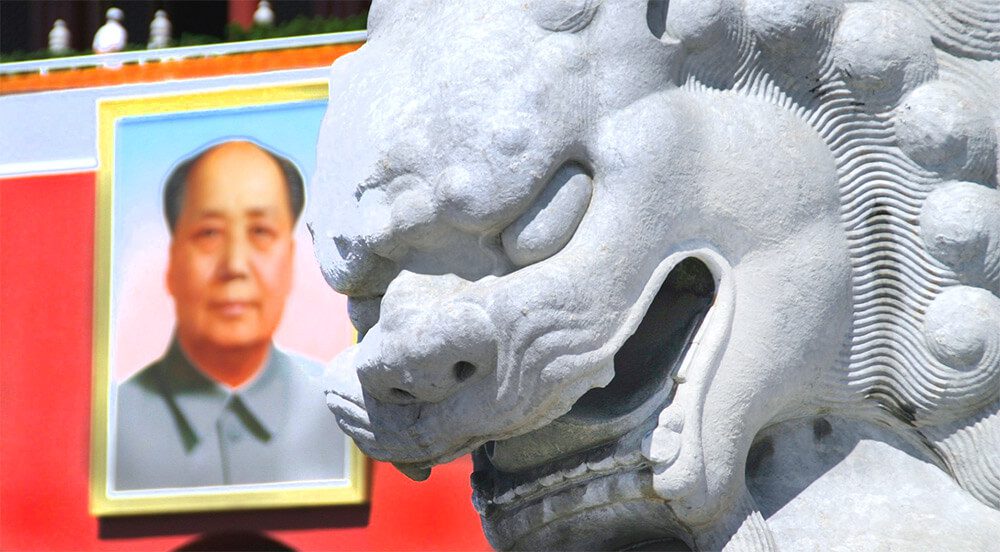 It’s foolish to assume Canada is immune to the party’s foreign interference, as it’s already happening here, write Devin Tuttle, Marcus Kolga, and Ai-Men Lau.
It’s foolish to assume Canada is immune to the party’s foreign interference, as it’s already happening here, write Devin Tuttle, Marcus Kolga, and Ai-Men Lau.
By Devin Tuttle, Marcus Kolga, and Ai-Men Lau, August 18, 2020
The COVID-19 pandemic has shone a spotlight on the foreign-interference tactics of Russia and China.
Since the beginning, both actively promoted disinformation and conspiracies about COVID-19’s origin and engaged in “mask diplomacy” to boost a favourable international profile.
There are allegations of Russian and Chinese hackers targeting organizations developing a COVID-19 vaccine. While Russia has made no secret of using hybrid warfare tactics against other countries, China has been much more clandestine in its operations.
Yet there are well-documented cases of the Chinese Communist Party’s (CCP) foreign-interference strategies. A report from V-Dem at Sweden’s University of Gothenburg found that Taiwan is subjected to more foreign interference from China than anywhere else. The CCP’s interference aims to engineer unification with Taiwan through the dissemination of disinformation on social media platforms, investment into Taiwanese media outlets, as well as co-opting actors and legacy institutions to suppress policies unfavourable to China.
Chinese foreign interference is not restricted to Asian states. A recording of former Australian Senator Sam Dastyari’s remarks at a 2016 news conference to Chinese reporters was obtained by Australian media. On the recording, Dastyari can be heard saying that Australia should respect China’s position on the South China Sea, a view in stark contrast to his own party’s stance. The news conference was organized by Chinese property developer Huang Xiangmo, who had picked up the Dastyari’s legal tab after the senator was sued by an advertising firm.
The scandal, which led to Dastyari’s resignation in 2017, sparked media investigations into the links between Australian politicians and CCP-linked money. It was uncovered that the largest donors to the Labour and Liberal parties were China-linked businesses, donating a total of $5.5 million AUS between 2013 to 2015.
It would be foolish to assume Canada is immune to the CCP’s foreign interference. In March, a report published by the all-party National Security and Intelligence Committee of Parliamentarians warned that both the Russian and Chinese governments “target ethnocultural communities, seek to corrupt the political process, manipulate the media” and pose “a significant risk to the rights and freedoms of Canadians and to the country’s sovereignty.”
The Canadian Security Intelligence Service reported that Canada is an attractive target for the Chinese regime, warning that the CCP has won support of influential Canadians through economic means such as sweetheart business deals or lucrative board positions in China. A lack of public attention to Beijing’s campaign also provides incentive for Chinese foreign interference.
These attacks against Canadian democracy are already well underway. The case of Rukiye Turdush, a Uighur-Canadian activist (the Uighurs are a Turkic-speaking, persecuted minority in China), reveals coordination between Chinese students and Chinese consular officials against speech critical of China on Canadian university campuses.
Major media outlets publish articles under the guise of journalism from paid lobbyists on behalf of the Canadian Chinese Political Affairs Committee. Recently, several prominent Canadians penned an open letter to the prime minister to end the Vancouver-based extradition proceedings of Meng Wanzhou, deputy board chair and chief financial officer of telecom giant Huawei.
It is critical for the federal government to revamp Canada’s current strategies, regulations and policies to counteract a potential influence campaign from foreign actors such as China’s Communist Party regime. This will require greater coordination between our security agencies alongside key departments tasked with national security, including public safety, democratic institutions, global affairs and national defence. Canada should establish a National Centre for Strategic Communications and Digital Democracy that could effectively subvert and engage with attacks against our democracy.
Collaborative efforts should also extend beyond our institutions to improve information sharing between Five Eyes members, as well as working with social media companies and search engines to integrate digital tools to identify disinformation and misinformation.
Beyond these efforts, Canada would be wise to adopt digital tools to identify and monitor foreign-interference campaigns and readily share pervasive occurrences with the public.
If Canada is to maintain integrity in our democratic system, we should heed the warning signs.
Devin Tuttle is a researcher at the University of Calgary in foreign policy and security studies; Marcus Kolga is a senior fellow; and Ai-Men Lau is a communications officer at the Macdonald-Laurier Institute.




